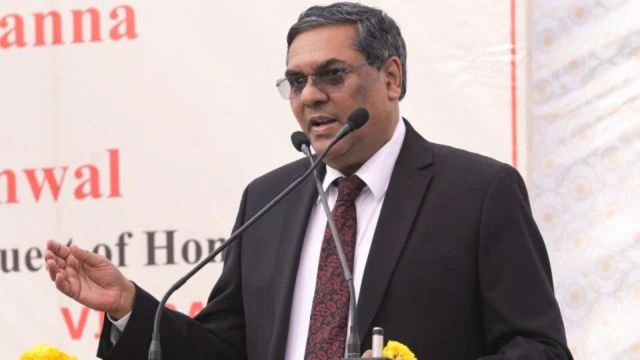ARTICLE AD BOX
 This clause, Justice Khanna is learnt to have said in his submission, will be open to question as violating and offending the basic structure of the Constitution on the ground of being arbitrary and offending to Article 14.
This clause, Justice Khanna is learnt to have said in his submission, will be open to question as violating and offending the basic structure of the Constitution on the ground of being arbitrary and offending to Article 14.
Former Chief Justice of India Sanjiv Khanna, who appeared before the Joint Parliamentary Committee (JPC) on One Nation One Election (ONOE) Bill on Tuesday, is learnt to have said that the Bill does not violate the basic structure of the Constitution in its entirety.
He is also learnt to have accepted the authority of the Election Commission in conduct of polls, but raised questions on the unfettered powers given to the EC on postponement of elections in the Bill.
Before Justice Khanna, four former CJIs — U U Lalit, Ranjan Gogoi, J S Khehar and D Y Chandrachud — had raised the issue of possible legal challenges to the Bill before the committee.
Justice Khanna is also learnt to have observed that while the stated intent of the Bill is to reduce the frequency of elections, this objective might not always materialise in practice, especially in cases of premature dissolution of legislatures.
At the same time, he expressed confidence in the maturity of India’s democracy and political class. He is learnt to have highlighted that India has not witnessed any mid-term elections in the past few decades — a reflection of growing political stability and institutional resilience.
On the notification of appointment date by the President, Justice Khanna is learnt to have proposed replacing the current notification-based process proposed in the Bill with a fixed date within the Bill itself.
In a written submission to the committee submitted last week, Justice Khanna is learnt to have said that Clause 5 to the proposed Article 82A confers unfettered discretion on the EC to form an opinion that the elections to a Legislative Assembly cannot be conducted along with the general elections of the House of People, and to make a recommendation to the President to declare by an order that the election to that Assembly may be conducted at a later date.
Story continues below this ad
This clause, Justice Khanna is learnt to have said in his submission, will be open to question as violating and offending the basic structure of the Constitution on the ground of being arbitrary and offending to Article 14.
He is also learnt to have submitted that postponement of elections by the EC may result in indirect President’s rule, in other words the Union Government taking over the reins of the state government. This will be questionable judicially, Justice Khanna is learnt to have said, as violating the federal structure envisaged by the Constitution.
Inputs from Damini Nath



.png)
.png)
.png)























 English (US) ·
English (US) ·